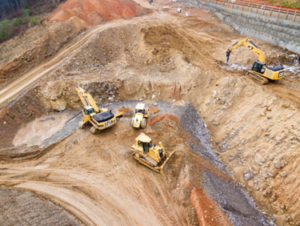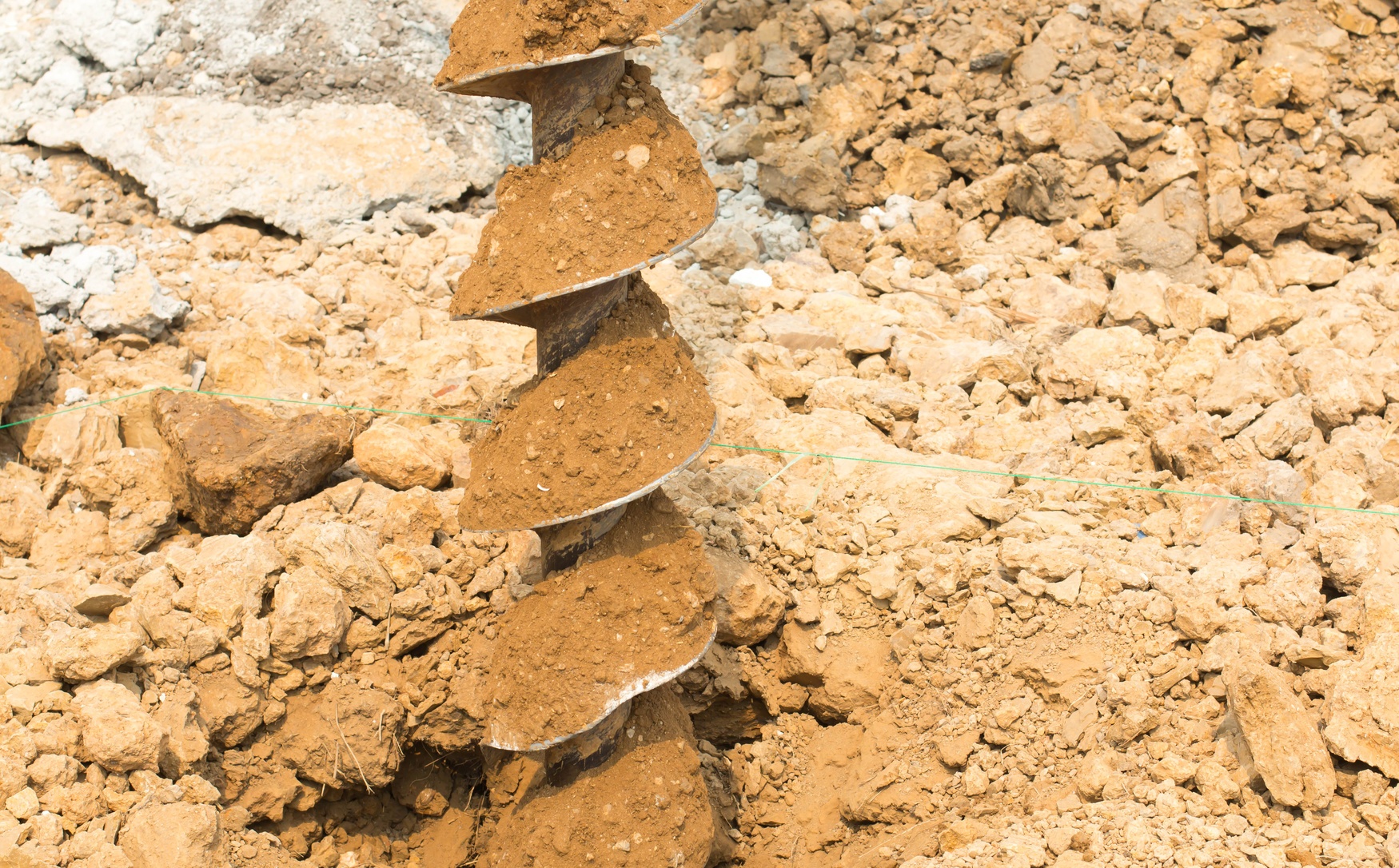Leading Geotechnical Companies in South Africa: That You Should Know
Leading Geotechnical Companies in South Africa: That You Should Know
Blog Article
The Value of Geotechnical Engineering in Dealing With Ecological Difficulties and Enhancing Building Security
Geotechnical engineering serves as a cornerstone in the intersection of environmental stewardship and construction security, offering vital insights into the habits of soil and rock under various conditions. This technique not just addresses pressing environmental obstacles such as dirt erosion and groundwater protection yet additionally improves the toughness of infrastructure versus all-natural hazards. By implementing calculated website examinations and tailored reduction steps, geotechnical designers play an important role in guarding both human lives and ecological honesty. Yet, the complexities of these difficulties raise important inquiries regarding the future direction of this area and its implications for lasting advancement.

Function of Geotechnical Engineering
Geotechnical engineering plays a vital function in the design and building and construction of framework by resolving the actions of soil and rock materials under various problems. This area of design is vital for comprehending the interaction in between frameworks and the ground, that includes identifying the load-bearing capacity of dirt, analyzing stability, and predicting possible negotiation or failure.
Geotechnical designers are accountable for carrying out website examinations, which involve tasting and screening dirt and rock to gather information on their physical and chemical homes. This information is essential for designing foundations, maintaining wall surfaces, and various other earth-retaining frameworks that ensure safety and durability. Geotechnical engineering educates the selection of proper construction techniques and products, consequently decreasing dangers connected with dirt actions.
Additionally, the assimilation of geotechnical engineering concepts right into urban preparation and ecological management is vital for dealing with difficulties such as ground contamination and groundwater monitoring. By understanding geotechnical aspects, engineers can establish lasting services that improve the strength of infrastructure against all-natural threats, while also promoting ecological stewardship. Inevitably, the duty of geotechnical design is important for attaining secure, durable, and environmentally mindful building methods.
Soil Disintegration Reduction
Dirt disintegration poses a considerable danger to both ecological security and framework honesty, impacting approximately 24 billion lots of productive dirt shed each year worldwide. This sensation is aggravated by variables such as logging, urbanization, and bad farming practices. Geotechnical engineering plays an essential role in developing effective soil erosion reduction approaches that guard both the atmosphere and construction projects.
One technique involves the application of erosion control methods such as greenery planting, which maintains soil via root systems. In addition, the construction of retaining wall surfaces and balconies can properly lower surface area overflow and safeguard vulnerable locations from disintegration. Proper drain style is also crucial; it minimizes water buildup and guides excess runoff far from essential frameworks.
Furthermore, geotechnical engineers utilize soil stablizing methods, such as the application of geotextiles and biodegradable floor coverings, to improve dirt cohesion and prevent destruction - about geotechnical engineering. Regular tracking and evaluation of erosion-prone websites allow prompt interventions, making certain long-lasting sustainability. By integrating these approaches, geotechnical engineering not just mitigates the effects of dirt disintegration however additionally contributes to the strength of facilities against ecological challenges, ultimately promoting a safer and much more lasting built atmosphere
Groundwater Defense Techniques
Groundwater works as a vital resource for alcohol consumption water, farming, and industrial processes, making its security crucial for environmental sustainability and public health and wellness. Reliable groundwater protection techniques are important in alleviating contamination threats and ensuring the durability of this resource.

Normal tracking of groundwater quality is additionally necessary, allowing very early detection of contamination resources and helping with prompt remediation initiatives. Utilizing innovative innovations, such as geophysical studies and remote noticing, help in identifying prospective hazards to groundwater books.
In addition, public education and stakeholder involvement are essential, promoting community support for groundwater protection initiatives. about geotechnical engineering. By combining regulative procedures, technical developments, and neighborhood participation, we can create an extensive structure that safeguards groundwater sources while advertising sustainable advancement and construction practices
Landslide Danger Management
Landslides present substantial hazards to both human safety and infrastructure, making effective danger administration approaches essential. Geotechnical engineering plays a vital duty in recognizing, analyzing, and mitigating landslide risks. An extensive understanding of slope stability, soil auto mechanics, and hydrology is important for establishing effective risk management plans.
The initial step in landslide risk management entails comprehensive site investigations, which consist of geological mapping and soil testing. These examinations aid engineers assess the possibility for landslides by recognizing crucial factors such as incline angles, dirt make-up, and water material. Using sophisticated modern technologies such as remote picking up and geophysical surveys can improve the precision of these evaluations.
Once threats are identified, proper mitigation actions can be executed. These might include engineering services such as retaining wall surfaces, water drainage systems, and slope stabilization techniques. Furthermore, monitoring systems need to be developed to discover signs of ground activity and adjustments in water degrees, allowing for aggressive interventions.

Enhancing Construction Safety
Building sites typically provide a myriad of risks that can endanger worker safety and task stability. Geotechnical engineering plays a vital function in enhancing construction safety by giving crucial understandings right into subsurface problems. With extensive soil and rock evaluation, geotechnical designers can determine potential threats, such as dirt instability, groundwater concerns, and seismic susceptabilities, which may compromise the safety and Your Domain Name security of building activities.
Implementing geotechnical remedies, such as appropriate foundation style and making use of preserving structures, alleviates these threats dramatically. These services not only make certain the stability of the structures being developed however also produce a more secure working environment for building and construction workers. In addition, rigorous tracking and evaluation of site problems throughout the construction process are essential. Utilizing sophisticated technologies like ground-penetrating radar and inclinometer systems makes it possible for real-time information collection, permitting timely treatments when threats are found.
In addition, cultivating a society of safety and security via training and adherence to developed security methods better boosts building and construction website safety. By integrating geotechnical expertise right into the planning and implementation phases, building jobs can achieve greater security standards, ultimately protecting workers and guaranteeing successful task conclusion.
Final Thought
In conclusion, geotechnical engineering offers as a crucial discipline in dealing with environmental difficulties and advertising building safety. With efficient dirt disintegration mitigation, groundwater defense techniques, and landslide threat monitoring, geotechnical engineers contribute to the advancement of durable framework.
Geotechnical design offers as a keystone in the intersection of environmental stewardship and see this website building and construction safety and security, offering essential understandings into the behavior of dirt and rock under numerous conditions. Geotechnical engineering educates the selection of suitable building and construction techniques and materials, thereby decreasing risks linked with soil habits.
Geotechnical engineering plays a critical role in creating efficient dirt disintegration reduction approaches that guard both the atmosphere and construction jobs.
Moreover, geotechnical engineers utilize soil stablizing strategies, such as the application of geotextiles and eco-friendly mats, to improve soil communication and stop degradation. With extensive soil and rock evaluation, geotechnical designers can recognize prospective dangers, such as dirt instability, groundwater concerns, and seismic vulnerabilities, which might jeopardize the safety of construction activities.
Report this page